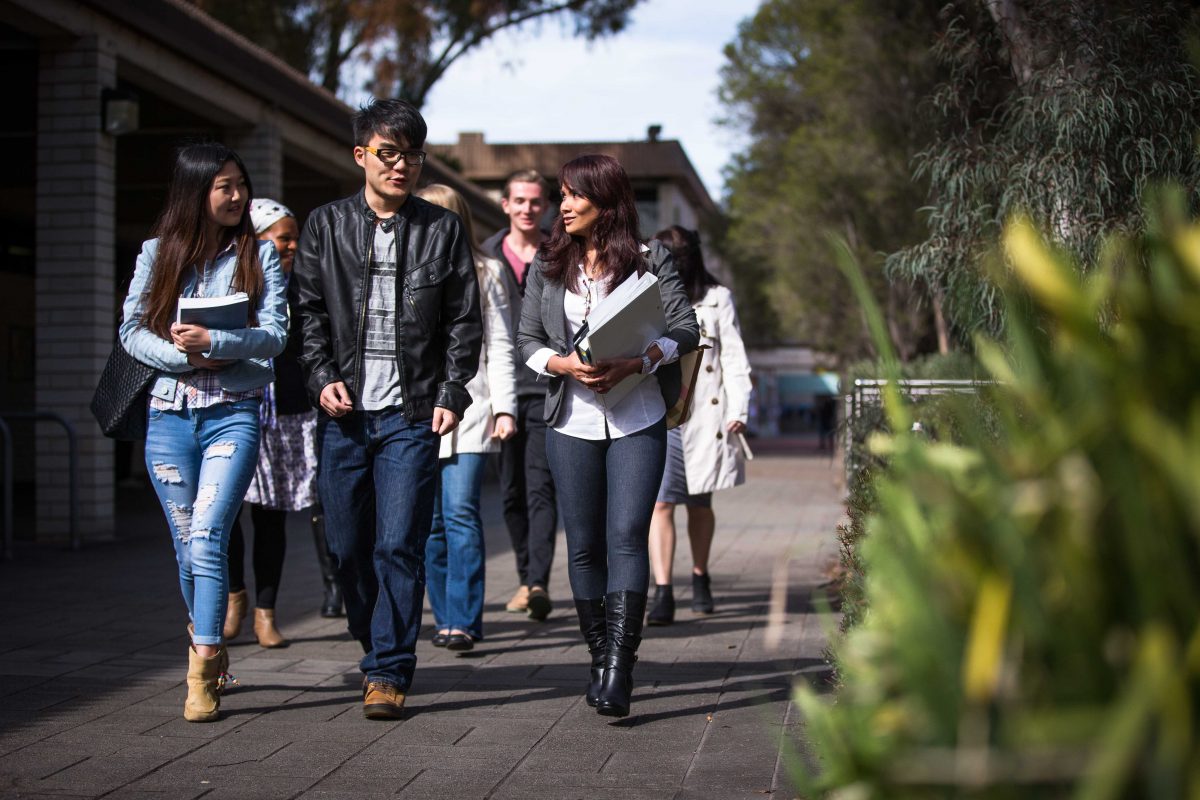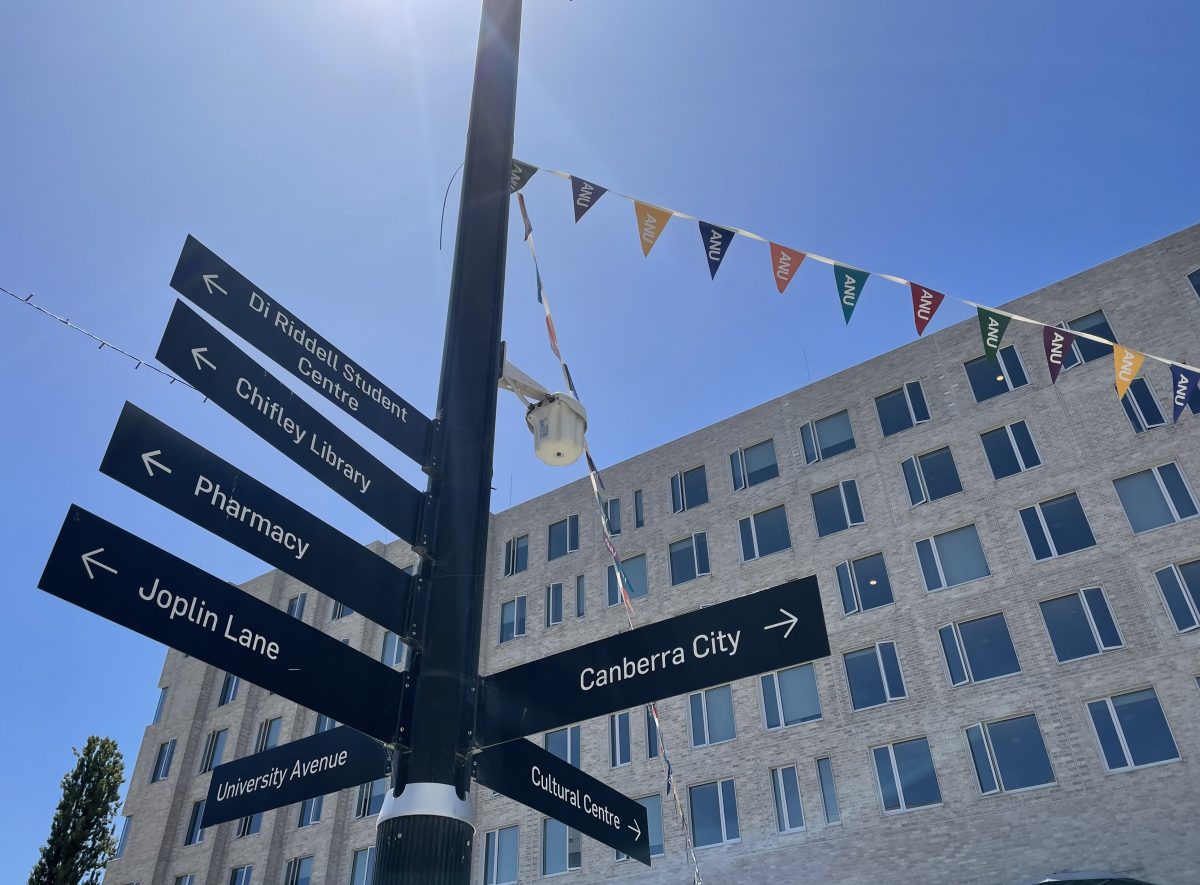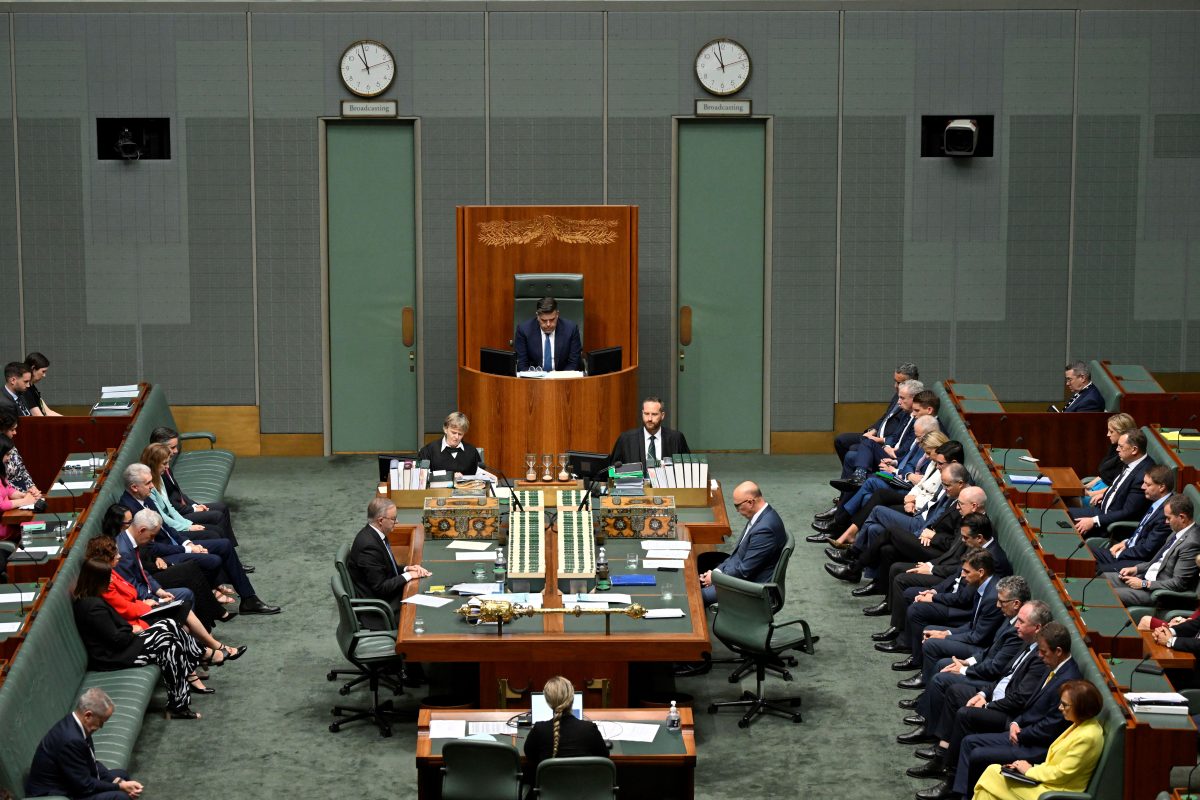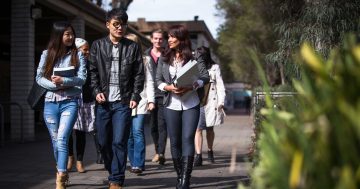
New research by the e61 Institute found people who ‘’hop’’ between student visas have weaker labour market outcomes, meaning the Federal Government’s recent ban on visa hopping is unlikely to result in a significant loss of talented migrants. Photo: Supplied.
Despite the recent clamour sparked by an inquiry’s notes on the international student cap legislation, new research has come out backing the Federal Government’s earlier move to trim overseas enrolments through a ban on ”visa hopping”.
In May this year, the Senate referred the Overseas Students Bill to the Education Committee for an inquiry on potential amendments. The move was brought about by concerns from the tertiary sector, especially higher-education providers in regional areas, that the new visa restrictions on international students would have a “disastrous” impact on their institutions.
Much of the criticism pointed to an instrument named Ministerial Direction No. 107 (MD 107), which was implemented in December last year as a key commitment under the government’s Migration Strategy. It brought in a process that assessed the risk profile of student bodies and made it harder for potential students to obtain visas.
The intent of MD 107 was to decrease the flow of non-genuine ”high-risk” providers that help students come into Australia for work rather than education. Then-Home Affairs Minister Clare O’Neil said by restricting the practice, coined as ”visa hopping’‘, the country would better manage population growth than with cuts to the permanent migration intake.
However, a letter to the Minister from the vice-chancellors of 16 Australian universities in February estimated the consequence of MD 107 and its accompanying bill would bring “a collective revenue downturn of approximately $310 million in 2024 alone, akin to the impact of the pandemic”.
When the government implemented its ban on ”visa hopping” in July, Minister O’Neil said it should now be clear to international student graduates that “they should be finding skilled jobs and becoming permanent residents, or departing the country when they are more likely to become ‘permanently temporary'”.
She noted the visitor-to-student pathway had become increasingly prevalent – with more than 36,000 applications since 1 July, 2023, to the end of May 2024 – thereby justifying her block on Visitor Visa and Temporary Graduate Visa holders from applying for Student Visas onshore.
Temporary Graduate Visa holders have been included to clamp down on the 32 per cent of those returning to study when their visa expires in order to prolong their stay in Australia.
Coupled with changes implemented in March – including significantly shorter post-study work rights, reduced age limits from 50 to 35, and increased English language requirements – Minister O’Neil claimed the government would achieve its goal to halve net overseas migration by the next financial year (2025-2026).

Universities Australia claims the government’s reluctance to lift MD 107 until at least 18 November could cost the economy a further $722 million and inflict more pain on the tertiary sector. Photo: Laura Liu.
When the Senate committee tasked with an inquiry into amendments for the Overseas Bill handed down its final report this month, the response was divided.
It recommended the bill be amended to remove the ability of Ministers to set course-level limits for public/private industries and TAFE providers. If accepted, this would leave potential course-level caps in place for private vocational colleges and mean the Minister for Education could still set limits for those categories at the provider level.
Independent Senator David Pocock said the bill was an especially big concern for his jurisdiction in the ACT, which is home to five university campuses and a billion-dollar export industry that accounts for 53 per cent of services industry exports.
While he acknowledged the importance of its intention “to limit the number of international students or risk enormous economic and educational damage”, the Senator called on Parliament to back further “vital amendments” he underwrote.
Taking into account the committee’s report and in-depth consultation with stakeholders, Senator Pocock said his amendments wound back and put guardrails around the “extraordinary” powers this bill conferred on the Minister.
The committee’s report agreed with this concern itself, putting forth a requirement for the Education Minister to consult ESOS agencies, individual providers and the Immigration Minister in setting future limits. It also recommended the bill specifically exempt certain groups of students and nationalities that Minister Jason Clare has confirmed would be, including stand-alone ELICOS and high school students.
The Federal Opposition, Greens, some cross-bench senators and the Independent Tertiary Education Council of Australia (ITECA) echoed similar concerns to those voiced in the report. However, the chief issue for Universities Australia CEO Luke Sheehy was MD 107.
“Under MD 107, almost 60,000 fewer visas have been granted in higher education, stripping an estimated $4 billion out of the economy and putting at risk 14,000 jobs in the university sector,” he said. “This is a cap by stealth that is damaging not just the national economy, but it is also causing serious financial harm to our universities, particularly those in outer-suburban and regional areas.”
Although the committee recommended MD 107 be removed and the Federal Government has indicated it will happen after the passage of the bill, Mr Sheehy said we couldn’t wait any longer.
“Every day MD 107 is in place, Australia loses $19 million,” he said. “This can’t go on.”

The next opportunity for the Overseas Students Bill to be debated is on 18 November before the Senate. However, it would need to go through the lower house and back again before passing. Photo: Department of Parliamentary Services.
Despite this opposition to the bill, new research by the e61 Institute claims the Federal Government’s ban on visa hopping in July is having positive results.
It found that visa hopping soared as it became harder to obtain permanent residency, with their share among total graduate visa holders surging between 2009 (2.5 per cent) and 2018 (more than 25 per cent).
Its study compared the jobs and salaries of international students who gained a second student visa and those who did not, finding that during their time as graduate visa holders, visa hoppers:
- Earn 20 per cent less than other graduate visa holders on average;
- Earn 10 per cent less than other graduate visa holders who work in the same occupation;
- Earn a similar salary to other graduate visa holders who return to their home country after their graduate visa expires;
- Are more likely to work in relatively lower-skilled occupations, such as retailers and hospitality workers, compared with other graduate visa holders who transitioned to permanent visas.
Based on that analysis, research manager Silvia Griselda said the results indicated that the ban would mostly affect lower-earning migrants, often employed in low-skilled jobs, “and is unlikely to result in a loss of high-skilled migrants”.
“Encouraging lower-wage migrants to return home will raise the average skill of international graduates in Australia, allowing more of them to obtain permanent residency and deliver a significant economic benefit to Australia,” she said.




